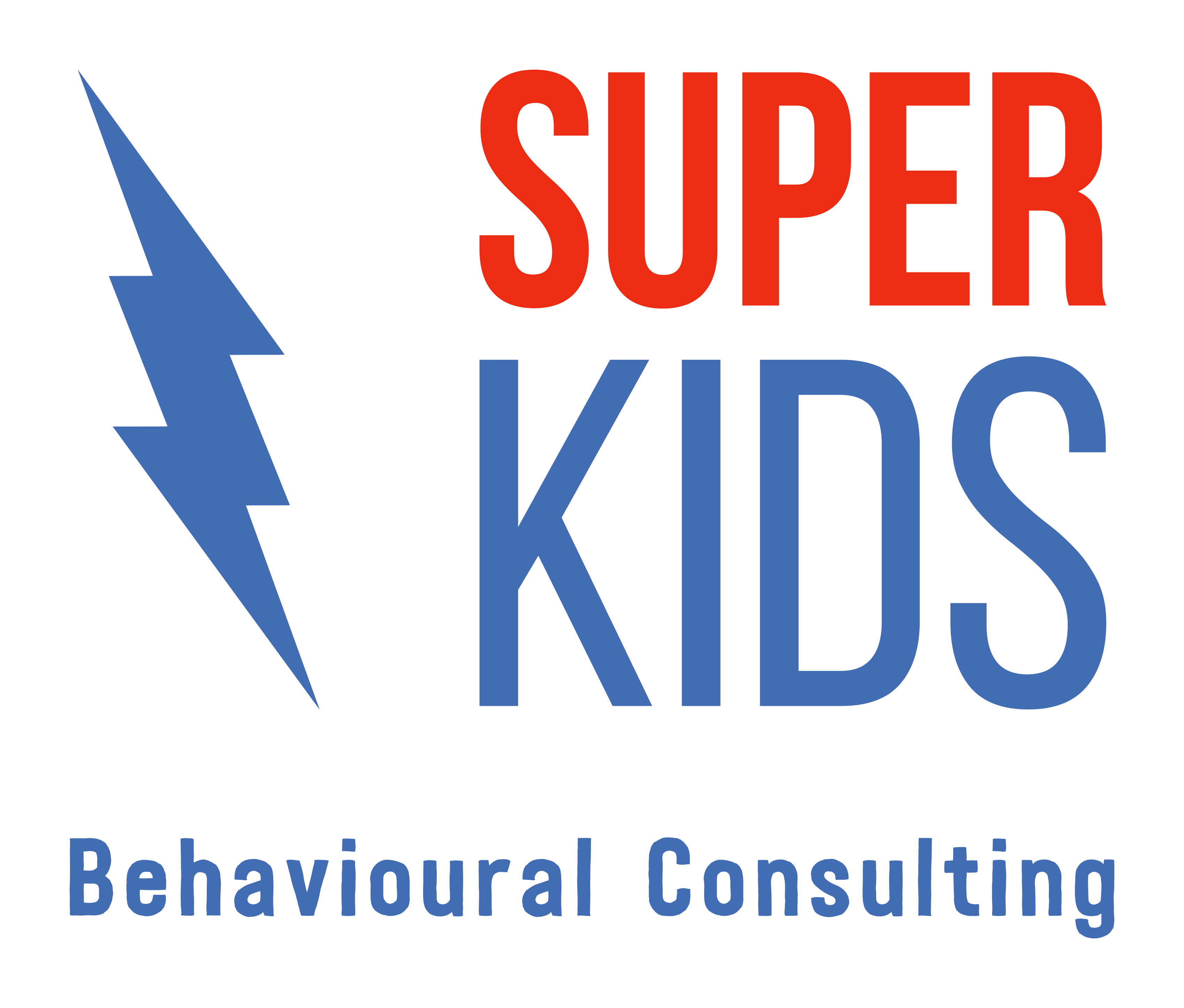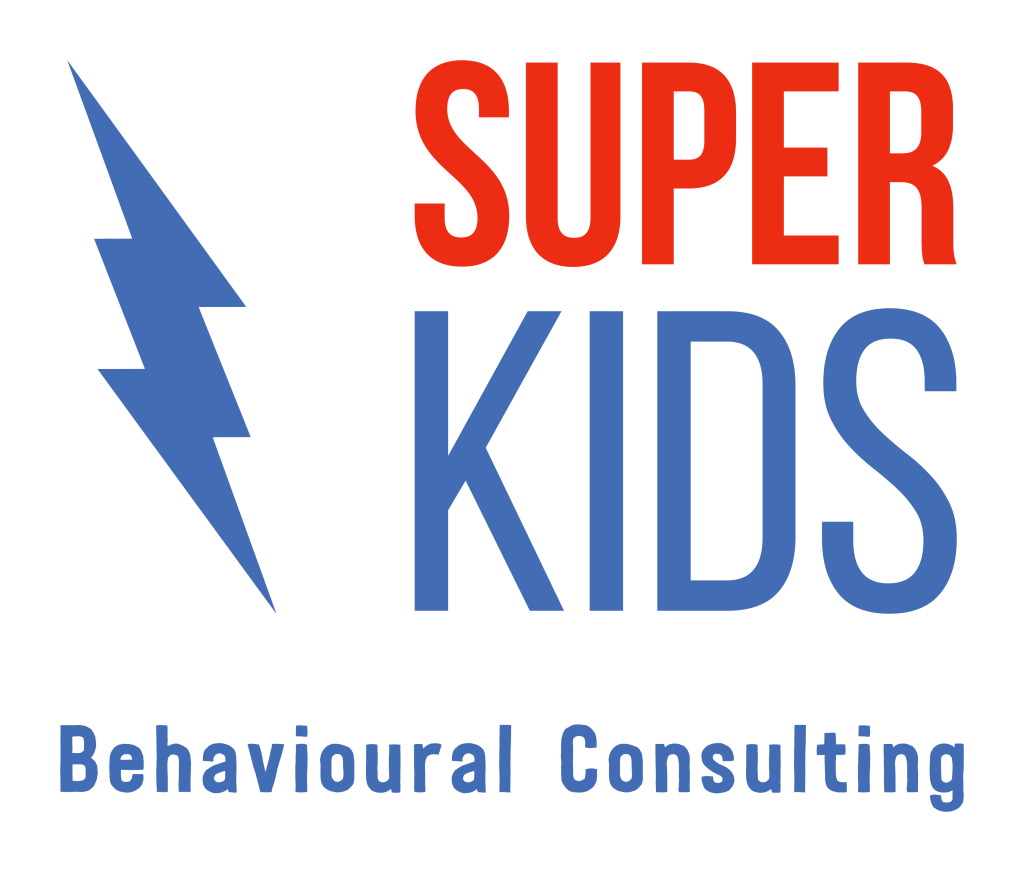ABA vs Psychology

Emily O'Hanna
REGISTERED PSYCHOLOGIST (She/Her)

Psychology vs. Applied Behaviour Analysis (ABA) for Children and Teens: What’s the Difference?
When it comes to supporting children and teens with neurodivergence or behavioural challenges, two commonly considered services are Psychology or Applied Behaviour Analysis (ABA). Both services are effective and evidence-based, but they can focus on and support different aspects of a child’s development and challenges. Understanding the distinctions between these approaches – and how they can complement each other – can help you make the best choice for your child’s unique needs.
At Super Kids, we provide both compassionate, evidence-based psychological care and ABA services. In this blog, we’ll compare psychology services and ABA, explore the similarities and differences, and discuss which approach may be more suitable for your child or teen.
What does Psychology for Children and Teens Involve?
Psychology services for children and teens focuses on both observable behaviours and the internal world – the thoughts, emotions, beliefs, self-concepts, and relationships that shape a child’s experience. Psychological therapy aims to help children and teens develop a deeper understanding of themselves and the world around them, while also building emotional regulation skills and coping strategies. Psychology goes beyond behaviours, addressing internal emotional and cognitive processes, relationships and attachment, social skills, values, identity, and self-confidence.
Psychology also offers a safe space for children to share about their experiences and challenges in a non-judgmental, empathetic environment. This space helps them talk about their thoughts and feelings without fear of criticism or judgement, building trust and self-awareness.
Key areas of focus in psychology therapy for neurodivergent children include:
- Emotional regulation: Helping children manage intense emotions like anger, sadness, or anxiety.
- Coping skills: Providing strategies to navigate social situations and challenges in daily life and build resilience.
- Self-confidence: Building a child’s belief in themselves and their abilities.
- Identity exploration: Offering a safe space to explore their feelings, thoughts, and sense of self, which can include understanding the strengths and challenges of a neurodiverse brain.
- Empathy and understanding: Giving children the opportunity to be heard and supported, and feel their perspectives and experiences are valued.
- Relationships and attachment: Helping children build strong, healthy relationships and understand important attachment patterns.
- Social skills: Improving social understanding, communication, and connection with peers.
- Parent support: Exploring and supporting parents in their interactions with their child, to build secure attachments and effectively manage behaviours of concern, whilst supporting parents’ own emotional difficulties and experiences of burnout.
Psychology services can be particularly well-suited for school-age children with typically developing cognitive abilities who can engage in some simple self-reflection and benefit from discussing their experiences and feelings. However, there’s no hard and fast rule about this!
One of the unique benefits of psychology services is the strong support for parents. Research has shown that when parents of neurodivergent children receive tailored, therapeutic support, it leads to significant improvements not just for the child, but for the whole family system. Parents who are well-supported are better able to cope with the challenges of raising a neurodivergent child and are more likely to report lower levels of stress and anxiety.
How does this compare with ABA?
ABA is a structured, data-driven approach that focuses on changing observable behaviour. ABA therapists work with children to encourage helpful and effective behaviours and reduce behaviours that may be challenging or dangerous. This is done through a variety of techniques, including reinforcement, prompting, and lots of skill building. Below is a comparison table to help clarify the differences between psychology and ABA services for children and teens:
Key Differences Between Psychology and ABA Services
Psychology | ABA (Applied Behaviour Analysis) | |
Focus | Internal emotional and cognitive processes, relationships and attachment, social skills, values, identity, and self-confidence | External behaviours and skill development |
Goal | Helping children understand themselves, manage emotions, and develop healthy coping strategies | Modifying or reducing behaviours of concern and teaching new skills |
Methods | ‘Talk therapy’ that encompasses activities, reflection, and practice of coping skills, using evidence approaches such as ACT and CBT | Behavioural techniques such as reinforcement, prompting, and shaping, using session-by-session data to track skill progression |
Duration of Sessions | Typically 50 minutes per session, weekly or fortnightly | Varies, often 2 to 2.5 hour sessions multiple times per week depending on needs |
Target Population | Children and teens with emotional regulation difficulties, social struggles, or mental health concerns | Children with behavioural challenges and may need support learning communication or independence skills |
Best For | Exploring feelings, improving self-awareness, emotional regulation, treatment for anxiety and other mental health concerns | Teaching new behaviours, improving communication, and reducing challenging behaviours |
Parent Support | Strong focus on parent support and mental health, helping parents manage stress, anxiety, burnout, and learn effective strategies | Some parent training, but more focused on behaviour management and teaching skills |
When to Choose Psychology vs. ABA
Psychology services may be more suitable when:
- Your child is struggling with emotional regulation, such as anxiety, anger, or frustration.
- Your child needs help understanding their emotions and how to communicate them effectively.
- You want to help your child develop self-advocacy and self-confidence.
- You’re looking for a more holistic approach that addresses the internal struggles of neurodivergence, such as social anxiety or low self-esteem.
- Your child is dealing with identity exploration and needs a safe, supportive space to express themselves.
- Challenging behaviours might be connected to emotional difficulties, thinking patterns, or a trauma history, which require understanding the root causes and addressing them in therapy.
- You want parent support to help manage stress, build resilience, and better understand your child’s psychological needs.
ABA Services may be more suitable when:
- Your child needs support with learning specific behaviours or skills, such as communication, self-care, or social interaction.
- Your child is engaging in challenging behaviours that interfere with daily life and requires structured interventions to modify those behaviours.
- You want to focus on teaching your child to follow instructions and engage in functional activities.
How Can Psychology and ABA Work Together?
While psychology and ABA focus on different aspects of a child’s development, they can work together to provide a well-rounded approach to support. For example:
- ABA can help teach children the necessary behavioural skills and reduce challenging behaviours, while psychology can help them understand the emotions behind those behaviours and develop coping strategies.
- Psychology services can address the emotional and social struggles of a child, while ABA can provide structured support for children to practice social and communication skills.
In many cases, children may benefit from both approaches – using ABA for skill development and psychology to address emotional regulation and self-understanding.
Making the Right Decision for Your Child
Deciding between psychology and ABA depends on your child’s unique needs. If your child is struggling with emotional regulation, mental health concerns, social issues, or self-esteem, psychology might be the most beneficial. However, if behavioural issues are the main concern, or your child is younger in age/cognitive development, ABA could provide a more targeted approach.
Both psychology and ABA offer valuable, evidence-based support for neurodivergent children and teens. By understanding the focus and goals of each approach, you can determine which is more appropriate for your child’s needs, or how they can complement one another in a comprehensive support plan. For parents navigating these options, seeking guidance from professionals can help ensure your child gets the most effective and compassionate care possible.
If you’re interested in learning more about how psychology services and ABA can benefit your child, or if you need help determining the best approach for your family, feel free to reach out to us at Super Kids to discuss further or book your first appointment.
Super Kids acknowledges each individual’s personal preference to use identity-first or person-first language to describe themselves or their loved one. We interchangeably use both language conventions and therefore refer to both Autistic children and children with Autism.






